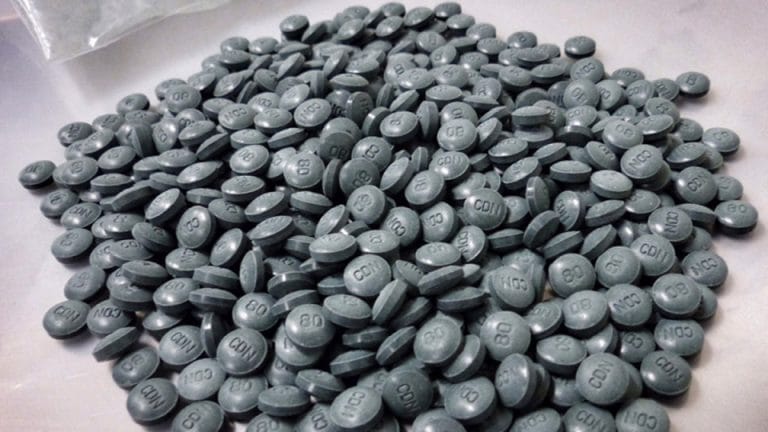If you or someone you care about is struggling with fentanyl addiction, you already know the devastating consequences this powerful opioid has on users and their families.
Fentanyl addiction has become a health crisis in recent years. At the moment, hundreds die of fentanyl overdose in Canada each year.
The good news is, you can stop using fentanyl with addiction treatment. In this article, you will learn more about fentanyl, its effects, and the best ways to stop using fentanyl.
What Is Fentanyl, and Why Has It Become So Prevalent?
Fentanyl hydrochloride is an opioid painkiller that was originally developed as a medicine for people with a high tolerance to other opiates, such as cancer patients, but today it is also prescribed to patients with no history of opioid use.
The effect of fentanyl is similar to that of morphine, only much stronger. Fentanyl comes in different applications, from patches to pills and lozenges.
Some facts about fentanyl:
- Prescription-grade fentanyl is up to 100 times more toxic than morphine. An amount the size of a grain of sand can kill a healthy adult.
- Fentanyl came into widespread use in the mid-’90s with the introduction of the transdermal patch.
- Most of the fentanyl that comes into the country illegally is ordered online and disguised so as to be undetectable by border guards.
Whether a person is seeking legitimate pain management or struggling with dependence, using fentanyl can quickly turn into a serious addiction that requires ever-increasing amounts to achieve the same high.
The purity of illegal fentanyl is essentially unknown; just a tiny variation in dosage can cause a fatal overdose. Even experienced opiate users can easily overdose from fentanyl, particularly when it’s not possible to know exactly how much they are taking.
What Fentanyl Does to the Body
Fentanyl is a drug with a strong physical addiction profile, meaning that once dependence sets in, the brain’s neurotransmitters no longer function as normal; they depend on the drug. Like other opiates, it produces a euphoric high.
Side effects of fentanyl include drowsiness, sedation, and difficulty breathing.
Once you stop using fentanyl, like any other opioid, withdrawal symptoms occur.
Detox from Fentanyl
Because fentanyl is a powerful opioid, the first step to quitting may involve medical attention. A safe, professionally monitored place to detox, and a schedule to wean off (slowly remove the drug from your system) is a good place to start.
At Renascent, our professional staff can make detox arrangements and medical referrals for anyone wishing to stop using fentanyl.
Treatment and Recovery from Your Fentanyl Addiction
As with any other drug, detoxing from fentanyl is just the first step of your recovery journey. To break the addictive cycle and prevent relapse, a treatment program addresses the factors that led you to abuse opiates in the first place.
The hard work of detox needs to be closely followed by a substance abuse treatment program to make it effective.
Renascent’s residential fentanyl addiction treatment program provides an immersive environment with the support and tools needed for your recovery, because we apply proven therapeutic tools to address cravings, negative behaviours, and ongoing sobriety. Our Fentanyl Addiction Treatment program includes:
- 28 to 42 days stays in one of our welcoming homes – we don’t operate institutions;
- around-the-clock counselling and support from our inter-disciplinary team of registered psychotherapists and certified addiction specialists, all of whom have lived experience of addiction and recovery so they truly know and understand what you’re going through;
- professional and peer support focused on you and your situation, addressing the complex needs of the entire person and providing the tools needed for healing and recovering, so that you can succeed drug-free, living life on life’s terms;
- education to arm you with knowledge about the disease of addiction and how to achieve real, sustainable recovery;
- group sessions where you learn that you are not alone, and become part of a supportive network;
- ongoing support to help you maintain your sobriety after leaving treatment.
In addition to treating the individual, our Family Programs also address the impact of fentanyl addiction on the entire family unit, and provide support to loved ones who have suffered the effects of living with and loving an addict.
Renascent also provides ongoing aftercare with our Continuing Care program, which supports clients through the transition back to home, school, or work, where you are learning to navigate life’s challenges in sobriety.
If you wish that you or a loved one could face the world without dependence on fentanyl or other drugs, call Renascent today. Our counsellors are available 24/7 to speak with you confidentially and answer your questions about fentanyl addiction and treatment, without commitment. It’s a first step toward learning the skills you need to live a sober, happy life.

